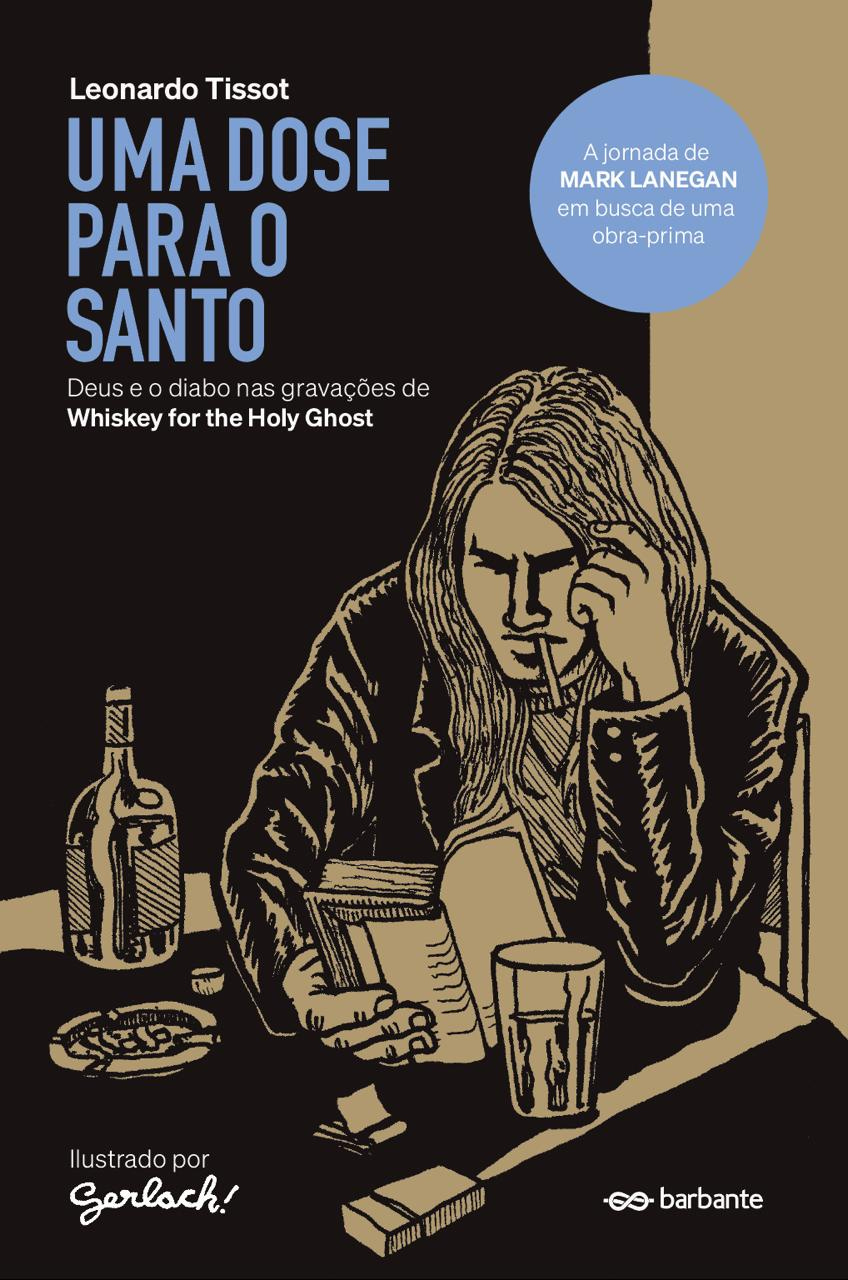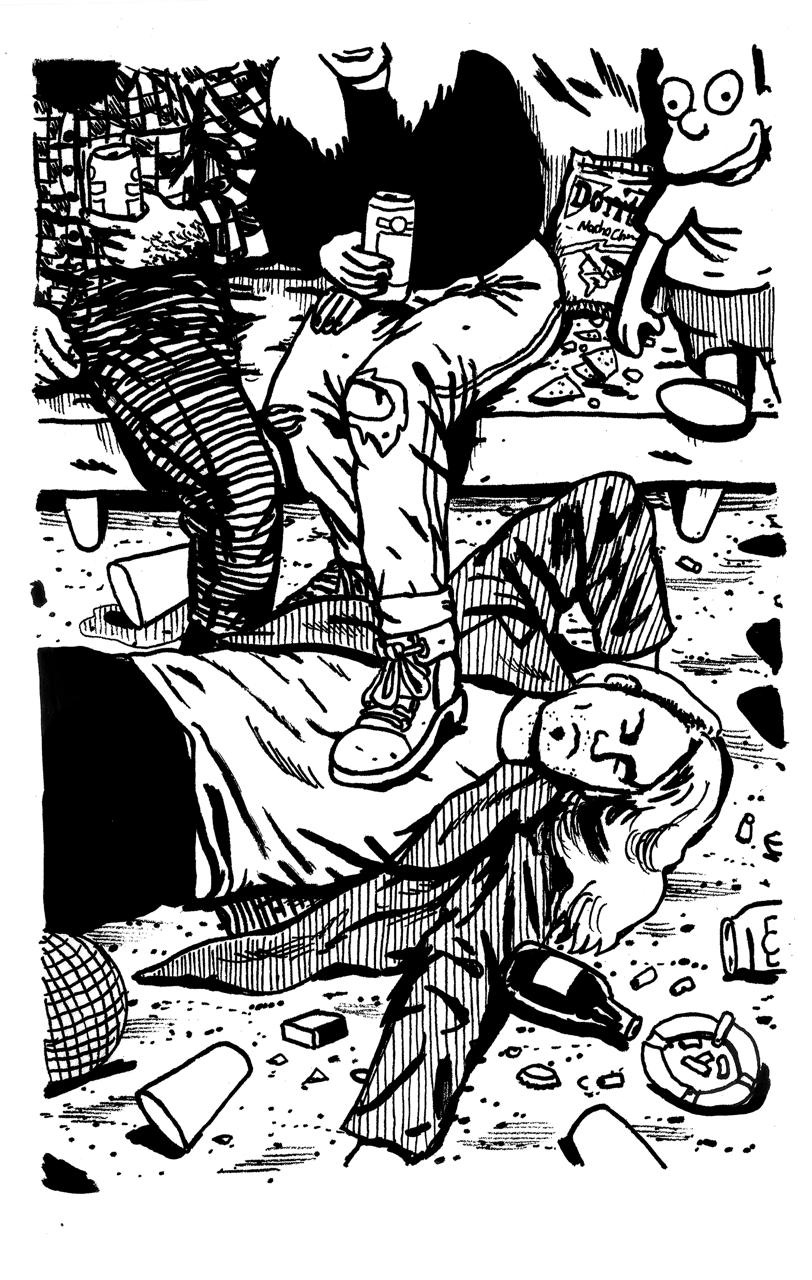Parecia uma noite qualquer de setembro de 2024. Eu estava em casa cuidando da minha vida quando, do nada, recebi uma mensagem no WhatsApp. Era o Alessandro Andreola, sócio da Editora Barbante, com um convite irrecusável: escrever um livro para a Sound + Vision.
Para quem não sabe, a Sound + Vision é uma coleção de livros sobre música. Mais especificamente, é uma coleção de livros sobre discos. Organizado no formato faixa a faixa, cada livro da série traz, além dos textos de seu autor sobre a obra em questão, desenhos de um artista convidado.
Onze meses depois, chega ao mundo Uma Dose Para o Santo — Deus e o diabo nas gravações de Whiskey for the Holy Ghost, livro sobre o segundo disco solo de Mark Lanegan.
É muito difícil falar sobre o próprio trabalho. Então, vou colar a sinopse escrita pela editora:
Mark Lanegan começou a carreira na música em 1984, como vocalista dos Screaming Trees. A partir de 1990, passou a lançar discos como artista solo, numa trajetória em que constam 12 álbuns e centenas de apresentações ao redor do mundo, inclusive com passagens marcantes pelo Brasil. Falecido em 2022, aos 57 anos, após um período em que sofreu por conta da Covid-19, Lanegan deixou uma obra admirada por fãs e elogiada pela crítica especializada.
Ponto de inflexão na carreira do músico, Whiskey for the Holy Ghost mostra um Lanegan obcecado em criar uma obra-prima. As gravações levaram três anos para ser concluídas e foram marcadas por uma acidentada produção que envolveu quatro engenheiros de som, 15 músicos e uma tentativa de jogar as fitas master em um riacho, em Seattle.
Em Uma Dose Para o Santo, o autor Leonardo Tissot reconstrói os bastidores da produção do disco que quase não existiu, tamanhos foram os percalços durante seu processo de gravação. Escrito a partir de uma profunda pesquisa que envolveu entrevistas com figuras-chave da produção, como Jack Endino e Mike Johnson, o livro é o oitavo volume da coleção Sound+Vision, dedicada a analisar álbuns musicais no formato faixa a faixa. A edição conta ainda com 13 ilustrações inéditas de Diego Gerlach.
E aqui está o que o jornalista e músico Alexandre Lopes disse sobre o livro:
Whiskey for the Holy Ghost é, sem dúvida, um dos pontos altos da carreira de Mark Lanegan. Seu processo de criação conturbado, nômade e embebido em mistério ganha luz neste livro-tributo envolvente. Em Uma Dose Para o Santo, Leonardo Tissot faz um apanhado histórico para desvendar as influências e bastidores do álbum com rigor jornalístico, entrevistas reveladoras e sensibilidade artística — por meio dos desenhos de Diego Gerlach — além de reconhecer a importância do músico Mike Johnson nessa fase inicial de sua carreira solo. Uma leitura indispensável para fãs do "Night Porter".
O que eu tenho a dizer sobre o livro? Apenas que foi incrível ter a oportunidade de fazer algo tão legal. E, com o perdão do clichê, espero que gostem de ler tanto quanto eu gostei de escrever.
SERVIÇO
Uma Dose Para o Santo — Deus e o diabo nas gravações de Whiskey for the Holy Ghost
Capa brochura
Formato 12x18 cm
112 páginas
ISBN: 9788594470133
R$ 49,90








.jpg)

.png)